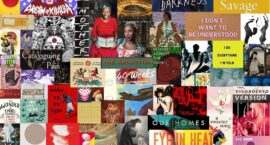I’m a former professor at the New College of Florida—I resigned the end of July.
On July 19, 2023, Robert Allen published an opinion piece in the Sarasota Herald Tribune criticizing the lack of ideological balance in the New College faculty and listing myself, faculty chair Amy Reid and gender studies professor Nick Clarkson as “pedagogical aberrations” that exemplified his point.
Shortly thereafter, I resigned—which would have happened regardless of Allen’s piece. However, Allen’s piece has invited me to speak up and, after much deliberation and careful wordsmithing, I’ve decided I want to share my story.












